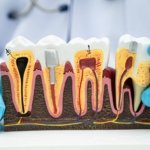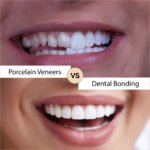
November 19, 2024
Your teeth might look pristine in the mirror, but dental health isn’t always skin deep. Some problems can lurk beneath the surface—hidden small cavities, infections, or impacted teeth waiting to cause trouble. X-rays act as a diagnostic superhero, giving dentists the ability to:
Detect Abnormalities: They can reveal cysts, tumors, or other abnormalities in their earliest stages.
Not all X-rays are created equal. Dentists choose different types depending on what they’re looking for:
Dental issues rarely resolve themselves. Left untreated, small problems can snowball into major concerns. Take cavities, for example—if detected early through X-rays, they might only need a small filling. But once decay progresses, it could lead to a root canal or even tooth loss.
Similarly, early detection of gum disease via X-rays allows for treatment before irreversible damage occurs. This proactive approach can save both your smile and your wallet.
And let’s not forget the life-saving potential. Although rare, dental X-rays can detect signs of oral cancer or other serious conditions before they cause symptoms. Early intervention dramatically improves outcomes.
Discover how improving tongue posture and jaw development can positively impact sleep, focus, and overall growth. Connect with our pediatric dental team today for expert guidance and personalized solutions.
Dental X-rays are more than just another step in your appointment—they’re a powerful tool for keeping your mouth healthy. By helping your dentist catch issues early, they can save you from discomfort, costly treatments, and even life-threatening conditions.
So next time your dentist suggests an X-ray, don’t hesitate. It’s a small step with big benefits for your overall oral health.
A common concern is the safety of X-rays due to radiation exposure. The truth? Modern dental X-rays are incredibly safe. Advances in technology have significantly reduced radiation levels. Plus, dentists take every precaution, like using lead aprons and only taking X-rays when necessary.
The benefits far outweigh the minimal risk. Skipping X-rays could mean missing out on crucial early diagnoses.
The frequency of dental X-rays varies depending on your age, dental history, and current oral health. Here’s a general guideline:

Root Canal Treatment: How It Saves Natural Teeth and Prevents Infection


Stop Waiting for Pain: Why Prevention Beats Costly Dental Treatments

Pulpotomy vs. Pulpectomy: What’s the Difference


| M | T | W | T | F | S | S |
|---|---|---|---|---|---|---|
| 1 | ||||||
| 2 | 3 | 4 | 5 | 6 | 7 | 8 |
| 9 | 10 | 11 | 12 | 13 | 14 | 15 |
| 16 | 17 | 18 | 19 | 20 | 21 | 22 |
| 23 | 24 | 25 | 26 | 27 | 28 | |
